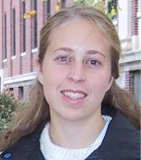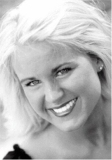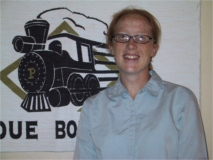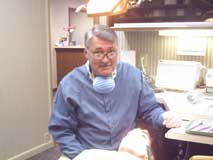Interested in Medical School with a Bachelor's in ANSC?
Are you an Animal Sciences Undergraduate at Purdue University, and thinking about going into medicine?
Preparing for medical school requires an organized plan. As soon as you decide to prepare for the medical field, you need to begin planning so that you will be competitive for medical school. This webpage is designed to assist you in this process, which is comprised of six main steps:
-
Prepare an academic curriculum that meets the requirements set by most medical schools, as well as any specific schools you already know you may attend.
-
Supplement your academic curriculum with research and/or volunteer experiences that will help you learn about and get acquainted with people in the medical field.
-
Prepare and take the MCAT.
-
Research medical schools where you will be eligible and competitive.
-
Gather letters of recommendations, and submit your AMCAS application.
-
Promptly submit secondary applications and prepare for interviews.
Pre-Med and ANSC Curriculum
Different Medical Schools are specific in their Prerequisite Courses. However, there are a set of standard core courses that are expected by most every medical school, which include the following:
| Pre-Med Requirements | Purdue Equivalents |
|---|---|
| One year of Biology (with laboratory) | Biol 110 and 111 and Biol 231-232 |
| One year General Chemistry (with laboratory) | CHM 115-116 or CHM 125-126 or CHM 123-124 |
| One year of Organic Chemistry (with laboratory) | CHM 255-256 or CHM 261-262 |
| One year of Physics (with laboratory) | PHYS 220-221 or PHYS 152-251 |
| One year of English (required by 60% of US Medical Schools) | ENGL 101-102 or 103 |
Do not think that this will suffice! Instead, investigate schools that you know you will be interested in applying to, and see exactly what their requirements are. You need to particularly pay attention to the English requirements. Since many pre-med students are science bound, it is crucial that you show your excellence in composition as well.
These are few suggested courses for pre-med students:
| Pre-Med Suggestions | Purdue Equivalents |
|---|---|
| One semester of Microbiology (with laboratory) | Biol 221 or BIOL 438 and 439 |
| One year of Calculus | MA 223-224 or MA 161-162 |
| One semester of Genetics | AGRY 320 or BIOL 241 |
| One semester of Biochemistry (with laboratory) | BCHM 307 and 309 |
| One year of Psychology or Sociology | PSY 120, 200, 201, 235 or SOC 100, 220, 334, etc. |
HINT: One thing to keep in mind while you are choosing your courses to boost your background for applying to medical school is the importance of your GPA. Most schools will not distinguish between an excelled General Chemistry course and an easy General Chemistry course. They will, however, distinguish between an A or a B in General Chemistry. So, perhaps, it is worth your while to give thought to your capabilities as a student to ensure your GPA remains competitive. So whatever courses you decide to choose, just be positively sure you get an A!
Purdue Pre-Professional Advising
Tips on Extracurriculuar Activities
Research Opportunities at Purdue
- Animal Sciences: Research opportunities for undergraduates are available in animal sciences. Please see faculty for more information.
- Biochemistry: Undergraduate Research Opportunities
- Biological Sciences: Undergraduate Research Opportunities
- Chemistry: Chemistry 49900 - Undergraduate Research
- Earth, Atmospheric & Planetary Sciences: Undergraduate Research Opportunities
- Physics: Research Experience for Undergraduates summer program
- Discovery Park: Undergraduate Research Internship Program (DURI)
Pre-Med Clubs/Organizations at Purdue
- Alpha Epsilon Delta Pre-medical Honor Society
Caduceus Club
Biology Club
Biochemistry Club - Other Opportunities
- United Way
- Purdue Student Activities and Organizations
The MCAT
The MCAT is only offered in April or August of each year. It is comprised of four sections. It is a full eight-hour-day test. The sections are listed below in the order of administration on test day, as well as the time length of each section and number of questions to expect.
| 1. Verbal Reasoning | 85 minutes | 9-10 passages - 65 questions |
| 2. Physical Sciences | 100 minutes | 10-11 passages - 77 questions |
| (Lunch) | 60 minutes | |
| 3. Writing Samples | 60 minutes | 2 essays (30 minutes each) |
| 4. Biological Sciences | 100 minutes | 10-11 passages - 77 questions |
Preparing for the MCAT
There are courses, software, and books available to you as you prepare to take the MCAT. You need to prepare by learning the structure of the test, by practicing taking very long exams so that you'll be comfortable when the real thing happens, and by learning how to cope with stress.
When to take the MCAT?
Before you take the MCAT, be sure to have at least one year's background in all of: general chemistry, physics, biology, and organic chemistry.
Advantages to an April MCAT: Early decision plan, scores can be seen faster
Disadvantages to an April MCAT: You may not have finished all your prerequisites
Advantages to an August MCAT: You can use the summer for preparation
Disadvantages to an August MCAT: Your scores will be much later; you will not be able to repeat the MCAT this year; no Early Decision Plan
Medical Schools
- Before applying to medical schools, make sure you know why you wish to attend each school. The admissions officers want to know why you want to go to their school specifically, and do not care for answers that involve school ranking. You need to speak of the curriculum and the faculty at that school, what research programs they have, and other things specific to that school. This will impress the committee, and will put your application on top of the pile.
- Research the requirements for admission of each school. Find out how old your MCAT scores can be before you must retake the test. Find out about financial aid, about funding, and other pertinent information. In short, find out everything you possibly can about each school that you apply to before you apply.
Application Process
For many medical schools in the United States, the application process begins with AMCAS, the American Medical College Application Service. Most medical schools in the United States participate in AMCAS, which is a benefit to you. You need to file only one application; AMCAS forwards a copy of it to every school that you are applying to.
This is a list of the schools that you'll need to get applications from directly:
Brown University, Columbia University, New York University, Texas A&M University, Texas Tech University, University of North Dakota, University of Missouri, University of Texas, and any school in Canada.
The AMCAS application consists of the following categories:
Biographic Information
This section contains what you think it would: background questions.
Post-Secondary Experiences
This lists your work experience, your extracurricular activites, and any honors you may have. Many people have many such activities; it is best to resist the urge to list everything - only put down what is relevant.
Essays
You will write two essays for the primary application, and assuredly more essays when you get the secondaries. The AMCAS essay section has a "practice vision" essay of 1/2 page and a "Describe yourself in 10 years" essay of one page. These essays do play a large role in their decision making, so put real effort into them.
Transcript Requests
You'll need transcripts from every postsecondary institution attended. Keep a copy of your transcript for yourself, so that while you are working on your various applications, you can keep degrees, courses, and dates correct.
Letters of Recommendation
AMCAS requires five letters of recommendation. It is good to get letters from both practicing physicians and non-physicians.
Course Work
You must list every course ever taken since high school. This includes courses for which you earned no credit. Enter the courses in chronological order, and transcribe them to the application in exactly the same manner as they appear on your transcript.
After submitting your AMCAS application, it will be sent to your designated schools. In the meantime, you will take the MCAT. Some schools will wait until after they have received your MCAT scores to send you a secondary application. Others will send them after you meet certain pre-qualifiers, which include a determination of your coursework, GPA, interests, etc. If you are sent a secondary application (and not all schools will send every applicant a secondary), the next step is submitting those applications. Your transcripts and letters of recommendation will follow your application.
If all goes well, your schools like your MCAT scores, your GPA, your coursework, your volunteer experience, and your supplementary applications - then they will invite you for an interview. This is the step where you see if the school really means business. If they didn't like you so far, they wouldn't have asked you to come, so prepare for the interview as if you were preparing to take another 8-hour test!
Here are some practice questions that you are likely to see at the interview.
ANSC ALUMNI IN THE MED FIELD

Dr. Chuck Dietzen
Medical School Attended: Indiana University School of Medicine
Purdue Major: Animal Sciences
Purdue Minor: N/A
Dr. Dietzen majored in animal sciences with the intention of going to vet school. However, he withdrew from the veterinary program about two weeks before classes started when he realized he wanted to be a doctor and work with children. Dr. Dietzen's family worked with over 150 foster children in their home while he was growing up and this had a profound impact on his decision to go to medical school.
He suggests that if you are interested in studying medicine that you personally make sure you satisfy the prerequisites for any schools to which you plan on applying, as the animal sciences program may not meet all the requirements alone (such as Physics). However, he does believe that animal sciences will give you the opportunity to stand out and be unique among other applicants.
Advice that Dr. Dietzen shares with students preparing for medical school is that you attend undergraduate school to learn to principles. "Don't give up. Medical school has a tendency to mold students, but stick through the first two years and don't get too caught up in grades and details. Be a positive influence and a reflection of the people that mold you. Be prepared for moments and seize them. It is not about competition. It is about squeezing more out of life. Have a sense of humor."

Claire Uebbing
Major: Animal Sciences
Minor: Pre Vet/Pre Med
Anticipated Profession: M.D.
"I chose animal science in order to provide a good science background in preparation for a career in veterinary medicine. My interest changed to human medicine after my first year of undergraduate. During the school year I have volunteered with Caregivers Companion, an organization providing respite care for primary caregivers and their families. During the summer, I volunteer at the Chapin Street Clinic, and last summer I worked as a nurse's assistant at a retirement home. This summer, I did research in the Veterinary Physiology lab at Tokyo University of A + T in order to gain research experience. I am also a member of the Purdue Stadium Rescue Squad, President of the Caduceus Club, and a member of Alpha Epsilon Delta Pre-medical Honor Society.
"If you enjoy learning about animals stick with animal science for your undergraduate degree. It is a good major to help you prepare for studying medicine. At the same time, take other "fun" classes to broaden your educational background.
"Consciously seek out opportunities for you to experience medicine, in a clinical setting, as well as just volunteering at home and in the school community. You know more about what you are getting into with this kind of experience."

Dr. Renee Knutson
Medical School Attended: Indiana University School of Medicine
Purdue University: Animal Sciences Master's and Ph.D., Research in Reproductive Physiology
Wisconsin University: Bachelor's of Science, Dept of Agriculture
Profession: Gynecology
Dr. Knudson grew up on a farm as a kid and was naturally interested in animals as an undergraduate and graduate student. However, she found that there were fewer jobs in working with animals and had gained extensive knowledge of reproductive physiology in humans through literature during her research. Finally, she made the decision to go to medical school.
Although Dr. Knudson had advantages in applying to medical school due to being an older student as well as having graduate research experience, she found it hard to go back to a rigorous class schedule. She also found her prior academics lacking in the Physics requirements by most medical schools, and had go back and update her course work to meet the admissions requirements.
"Have fun in undergraduate school. If it's what you want to do (go to medical schoool) then go for it. Don't give up."

Rachel Oldham
Major: Animal Sciences
Minor: Pre-Vet/Pre-Med Option
Anticipated Profession: M.D.
"I started with a major in Biology and really didn't like it. It was very impersonal and after much research, I found I could switch to Animal Sciences and still fill my Pre-Vet and Pre-Med requirements. I came to Purdue with the intention of going to veterinary school, and the more I got into it, the more I felt the desire to go to Medical School.
"In preparation for medical school, I have done a lot of volunteer work, TAed a class, and have been active in several campus organizations. Next semester, I am taking Biol 395 M, which is a medical school prep course.
"I suggest other animal science students planning to go to medical school should talk with Katy Bunder. She is wonderful and can help so much. Also, I interviewed Dr. Renee Knudson, an OBGYN in Lafayette. She did her studies in Animal Science and then went on to Medical School. She was a great source of information and gave me the extra boost that I needed to know that I could do it!"

Heidi Andersen
Major: Animal Sciences
Minor: NA
Anticipated Profession: Pediatrics, M.D.
"I began my undergraduate career with merely the hopes of graduating. I decided to major in animal science because I have always had a passion for animals, especially horses. I wanted to base my studies on something that interests me. Being involved in educational horse facilities broadened my experience with the exceptional people found in the horseback riding community. This awareness led me to investigate the applications of hippology and physical therapy. Through volunteer experience and attending a conference with the North American Riding for the Handicapped Association (NARHA), I watched children and adults perform what appeared to be simple routines on horseback. Understanding the severe handicaps they overcame helped me to realize that working with people brought the growth and fulfillment that I pursue. Shortly thereafter, I married and transferred to Purdue so that my husband and I could attend the same university. I changed my curriculum from strictly animal science to one that would prepare me for medical school. Through this, I would have the opportunity to help other people through the health profession.
"In order to prepare for medical school, I supplemented my curriculum with physics and microbiology, as the animal science requirements took care of the other necessary courses. In addition, I volunteered in the emergency room at Home Hospital for clinical experience. I took on a Research Lab Assistant position in the Entomology Department for the summer to gain research experience.
"I would suggest students planning to attend Medical School should not get caught up in taking the most difficult course available, but the class that is going to meet the requirement as well as allow you to get a good grade. It is important to supplement your animal science curriculum with courses that will prepare you for the MCAT and medical school."

Dr. Robin D. Sheets
Dental School Attended: Indiana University School of Dentistry
Purdue Major: Animal Science
Profession: Dentistry
Dr. Sheets started majoring in Animal Science at Purdue in 1968. He was raised on a farm in Brookston Indiana and grew up working with beef cattle. He had intentions of going to Veterinary School after he graduated with his BS in Animal Science in 1972.
His plans all changed when he was drafted into the United States Army shortly after graduation and was stationed in Alabama. As a source of extra income while in the service he began buying steers and heifers to send back to Indiana for resale. It was at this time that he became aquatinted with ranchers who also happened to be dentists. They encourage him to consider dentistry as it allowed them to use their science background and also gave them enough flexibility to pursue their agriculture interest.
The basics maintenance and care skills of a beef herd studied at Purdue are still knowledge he uses to raise cattle today. Because of the strong science background required to graduate with an Animal Science degree it gave him a lot of options when considering a Masters Program. Dr. Sheets felt like his ANSC studies gave him not only a good science foundation to expand on but also good people skills. He recommends pursuing an Animal Science degree at Purdue University as he feels it gives you practical information as well as many possible options when considering a masters program.